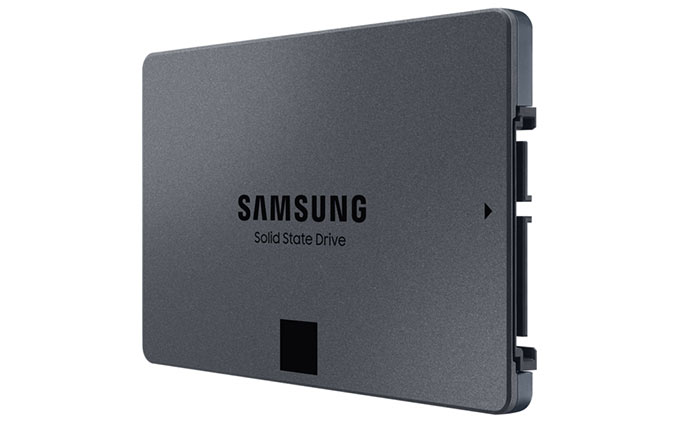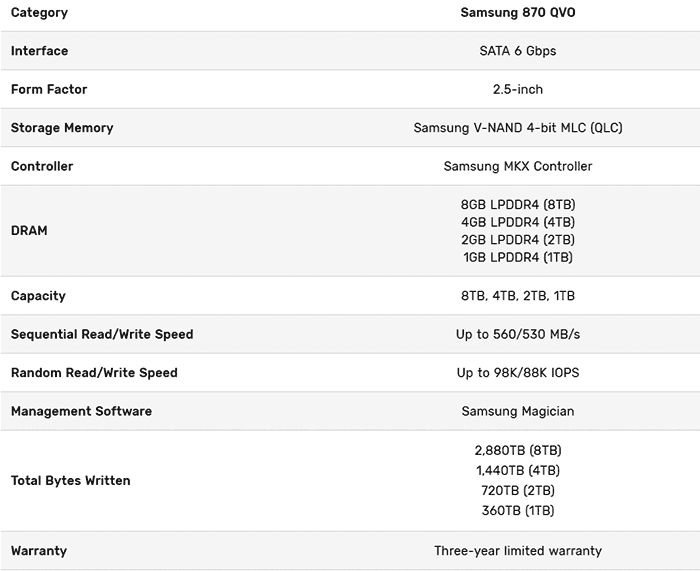Samsung has launched its second gen quad-level cell (QLC) SATA SSDs for consumers. It trumpets the drives as offering "an uncompromising mix of speed, storage capacity and reliability for mainstream and professional PC users," but probably the biggest news is that the range offers capacities up to 8TB.
The new Samsung 870 QVO SATA SSDs have been able to double the max capacity of the range by utilising Samsung's latest V-NAND 4-bit MLC (QLC) flash chips. Furthermore, Samsung claims that these devices are both faster and more reliable than the previous gen.

Enhancing the SSD performance as standard throughout the new 870 QVO range is both a DRAM cache, a large variable SLC buffer, Samsung's latest controller, and its Intelligent TurboWrite technology. Key performance metrics claimed for the new range are that they are offer sequential read and write speeds of up to 560 MB/s and 530 MB/s respectively, and up to 13 per cent faster random writes than with the previous gen 860 QVO drives.
Corresponding to its reliability claims, Samsung claims an endurance rating of up to 2,880 terabytes written (TBW) as part of its warranty, which if that milestone isn't reached will last a full three years.
Samsung says that its latest 870 QVO SATA SSDs are available now, starting at $129.99 for the 1TB model, $249 for 2TB, $499 for 4TB, and $899 for 8TB. Full specs for the range is reproduced below:

Some sites have had Samsung 870 QVO SATA SSDs in for review already. Anandtech, for example, sums up that it doesn't recommend the lower capacity versions as consumers can get TLC drives for less. If you have spare PCIe M.2 slots those would offer a preferable storage expansion option too. However, the larger capacity models currently have less competition in the targeted market.






